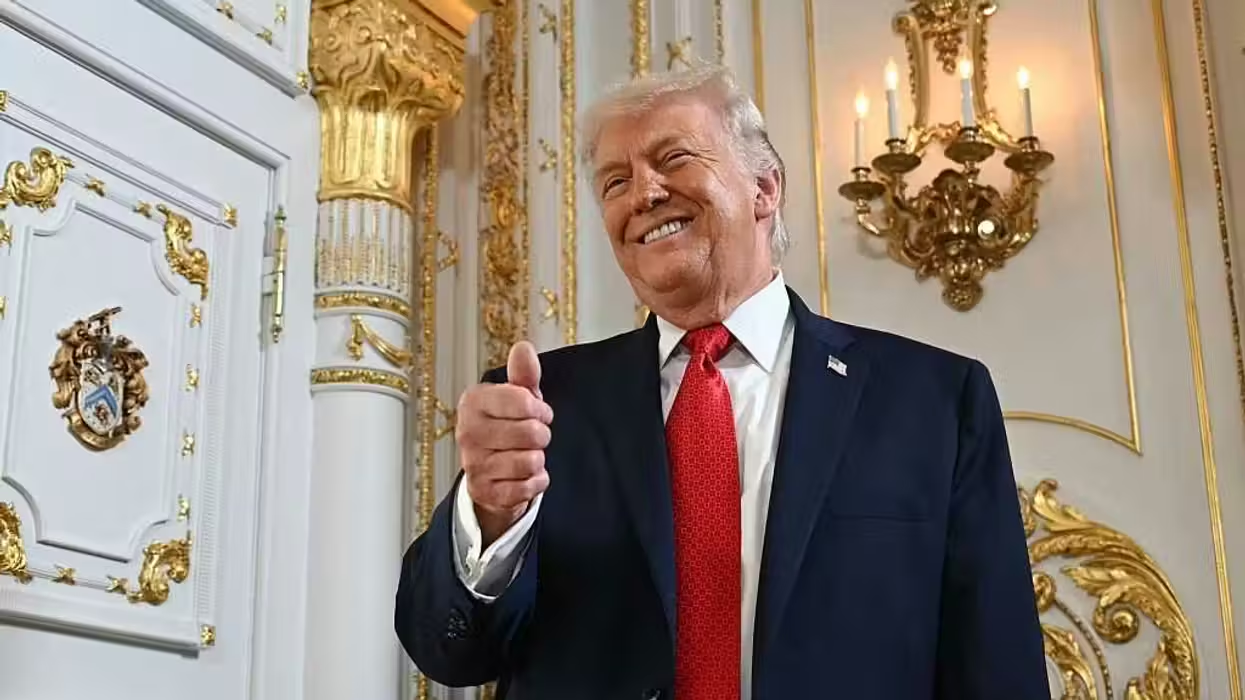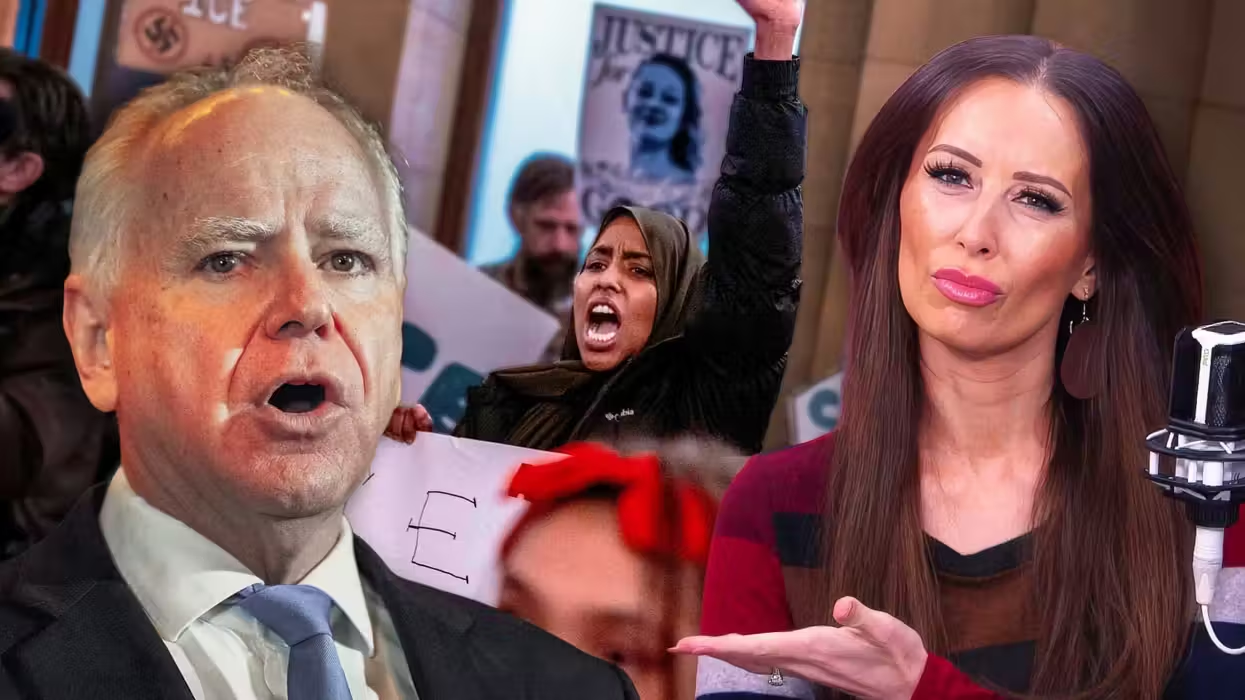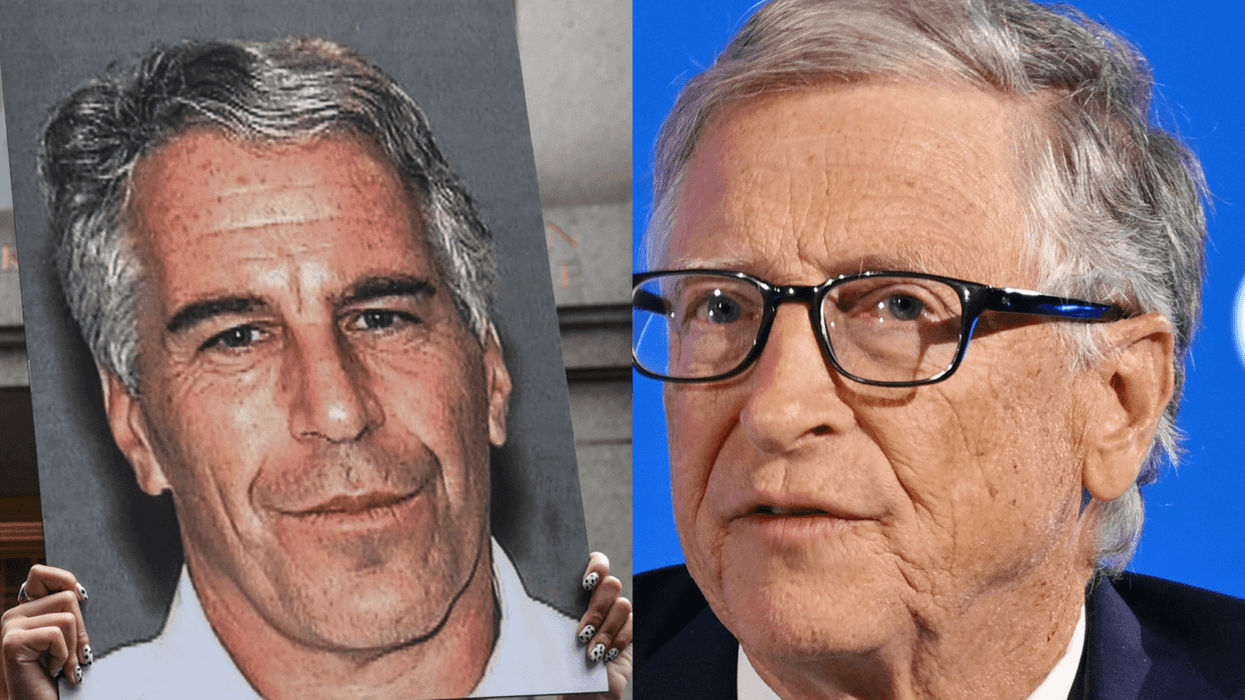
© 2026 Blaze Media LLC. All rights reserved.
Horowitz: Governors, not gods: State executives cannot simply do whatever they want indefinitely
April 20, 2020
Can a state interminably violate the First, Fifth, and 14th Amendments, confine Americans and close their businesses indefinitely, and regulate interstate commerce – all without federal intervention? This should be a no-brainer to anyone who is not constitutionally illiterate, yet for the political class, who didn’t seem to recognize anything outside the bounds of federal powers until this month, suddenly we are back to the Articles of Confederation!
As soon as the president began talking about opening up the country last week, the media pounced on him and suggested that he is not a king and cannot control the states. Even House Republican Conference Chair Liz Cheney, R-Wyo., tweaked Trump and implied that the 10th Amendment gives states the power to shut down the people and our businesses.
They are right. A president is not a king. But most certainly, a governor, county commissioner, or sheriff is not king either. We have natural rights given by God, and under no circumstances can any of those officials violate those rights indefinitely without due process, oversight, limitations, and checks and balances.
For decades we’ve been told that everything the Left has ever wanted to do is in the 14th Amendment and anything a state does contrary to those ideals is unconstitutional. Whether it’s early voting, voting without photo ID, affirmative action, abortion, redefinition of marriage, men in women’s bathrooms, etc., it’s all in the 14th Amendment, and federal courts can use it to strip state officials of their powers to govern. Except, of course when the 14th Amendment actually applies.
Believe it or not, while state powers are broader than federal powers, there are limits to state powers when it comes to core natural rights. As Sam Adams, the Founding Father of the American Revolution, said, “Among the natural rights of the colonists are these: First a right to life, secondly to liberty, and thirdly to property; together with the right to defend them in the best manner they can.” Judge Timothy Farrar, who wrote the first and most respected post-14th Amendment constitutional treatise, seamlessly listed all the inalienable rights that states cannot violated:
The States are recognized as governments, and, when their own constitutions permit, may do as they please; provided they do not interfere with the Constitution and laws of the United States, or with the civil or natural rights of the people recognized thereby, and held in conformity to them. The right of every person to “life, liberty, and property,” to “keep and bear arms,” to the “writ of habeas corpus” to “trial by jury,” and divers others, are recognized by, and held under, the Constitution of the United States, and cannot be infringed by individuals or even by the government itself” (“Manual of the Constitution of the United States of America,” Boston, 1867, p. 145 § 118).
Remember, we are told that the weakest unelected branch of the federal government can stop a state from issuing commonsense abortion regulations, election procedures, and marriage laws even when the Constitution explicitly gives states that authority. But somehow now a state government can indefinitely place an entire population under house arrest, citing refuted evidence that the policy is supported by science, and can ban people from earning a livelihood? These are the most foundational of inalienable rights.
Even voting, while close to a right, is more a function of a citizen privilege, not an inalienable right. States retained control of voting after the 14th Amendment, yet the courts have stripped states of their ability to implement simple anti-fraud and election integrity measures. Now we are to believe the stronger executive branch of the federal government can’t enforce the bare bones Bill of Rights against the states?
In contrasting even voting “rights” with a real fundamental right, we see clearly what the crafters of the 14th Amendment had in mind when they incorporated parts of the Bill of Rights into the federal Constitution to be enforced against the states.
Congressman John Bingham, one of the civil rights champions who drafted section two of the Fourteenth Amendment, declared that “we all agree, and the great body of the people of this country agree, and the committee thus far in reporting measures of reconstruction agree, that the exercise of the elective franchise, though it be one of the privileges of a citizen of the Republic, is exclusively under the control of the States.” Jacob Howard punctuated this point by observing that “the right of suffrage is not, in law, one of the privileges or immunities thus secured by the Constitution. It is merely the creature of law. It has always been regarded in this country as the result of positive local law, not regarded as one of those fundamental rights lying at the basis of all society and without which a people cannot exist except as slaves, subject to a despotism.”
Nobody bats an eyelash when a federal judge demands that states allow felons to vote, yet when it comes to those “fundamental rights lying at the basis of all society and without which a people cannot exist except as slaves,” such as basic freedom of movement and earning a living, as well as peaceful assembly and attending church, somehow Trump and Congress have no role in checking the states!
Yes, we all agree that states can and should push back against federal tyranny. But certainly, the federal government must do the same in this two-way street of federalism. That is exactly why our Founders moved from the Articles of Confederation to the Constitution and gave the federal government the power to regulate commerce.
As James Madison noted in a letter to Joseph C. Cabell in 1829, the “power to regulate commerce among the several States” was “intended as a negative and preventive provision against injustice among the States themselves, rather than as a power to be used for the positive purposes of the General Government.”
Sadly, the same politicians and media figures who believe the federal government can use the Commerce Clause to regulate every last aspect of our lives, jobs, and economy now believe it has no role in stopping states from restricting movement and shutting down interstate commerce.
The same cities that give sanctuary to illegal aliens violating the national sovereignty have now taken away the sanctuaries of American citizens. The Fifth Amendment states that no person shall “be deprived of life, liberty, or property, without due process of law; nor shall private property be taken for public use, without just compensation.” Governors cannot restrict movement, assembly, and religious services without due process nor shut down businesses without just compensation.
As Farrar noted, these are the rights that the 14th Amendment enforces against state governments. As the 1867 amendment reads: “No state shall make or enforce any law which shall abridge the privileges or immunities of citizens of the United States; nor shall any state deprive any person of life, liberty, or property, without due process of law.”
John Bingham, the primary drafter of this clause, made it clear in a speech before the House in early 1866 that the purpose of this clause was “to arm the Congress of the United States, by the consent of the people of the United States, with the power to enforce the bill of rights as it stands in the Constitution today.” On May 23, the proposed amendment moved to the Senate, where Sen. Jacob Howard described “the great object” of this clause to “restrain the power of the States and compel them at all times to respect these great fundamental guarantees.” Those included “the personal rights guarantied and secured by the first eight amendments of the Constitution.”
States can temporarily quarantine some people. They cannot, however, permanently shut down an entire population indefinitely. As a New York court ruled in The People vs. Peter W. Roff , a quarantine law can’t sentence “all persons, well or sick, whether exposed to infection or not, to an unlimited imprisonment.”
The public health is doubtless an interest of great delicacy and importance. Whatever power is in fact necessary to preserve it, will be cheerfully conferred by the Legislature, and carried into full effect by the Courts.But it can never be permitted that, even for the sake of the public health, any local, inferior board or tribunal shall repeal statutes, suspend the operation of the Constitution, and infringe all the natural rights of the citizen.
The very same “sovereign” states’ rights governors who want to shut down the country then turn to the federal printing presses and are begging for $500 billion to compensate for their unjust shutdown. Well, this is where the media doesn’t understand that Trump has the power to declare he will not sign legislation granting another penny to states that do this.
Yes, believe it or not, the federal government is not required to go along with this charade. In fact, the federal administration has an obligation to enforce our rights against the states. Sec. 5 of the 14th Amendment gives Congress the power to enforce these provisions through legislation. Trump should veto any spending for the states and leverage it against measures taken to punish states for violating the Constitution.
Want to leave a tip?
We answer to you. Help keep our content free of advertisers and big tech censorship by leaving a tip today.
Want to join the conversation?
Already a subscriber?
Blaze Podcast Host
Daniel Horowitz is the host of “Conservative Review with Daniel Horowitz” and a senior editor for Blaze News.
RMConservative
Daniel Horowitz
Blaze Podcast Host
Daniel Horowitz is the host of “Conservative Review with Daniel Horowitz” and a senior editor for Blaze News.
@RMConservative →more stories
Sign up for the Blaze newsletter
By signing up, you agree to our Privacy Policy and Terms of Use, and agree to receive content that may sometimes include advertisements. You may opt out at any time.
Related Content
© 2026 Blaze Media LLC. All rights reserved.
Get the stories that matter most delivered directly to your inbox.
By signing up, you agree to our Privacy Policy and Terms of Use, and agree to receive content that may sometimes include advertisements. You may opt out at any time.






